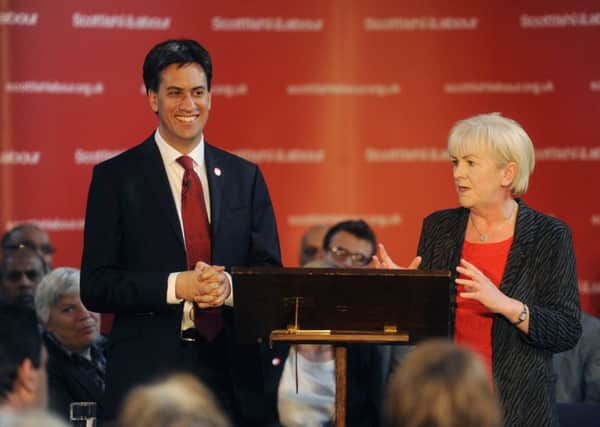Comment: Independence could renew Labour


If there is a Yes vote, serious issues will have to be resolved about whether we keep the pound in our pockets, nuclear submarines on the Clyde and membership of the European Union.
These are all much bigger issues than the future of Scottish Labour.
Advertisement
Hide AdAdvertisement
Hide AdBut if party members were to cast their ballot purely on the basis of political self-interest, they should vote for independence. Labour badly needs something new to meet the challenge of the SNP in the Scottish Parliament.
I was part of Iain Gray’s media team during the 2011 election campaign, when the party slumped to its lowest share of the vote since 1923.
This was a shocking setback. The SNP made gains in constituencies that meet the very definition of “Labour heartland”. Even Keir Hardie’s home in Cumnock is now represented by a nationalist.
The scale of the defeat was as unexpected as Partick Thistle picking up a victory at Old Trafford. Labour leader Ed Miliband responded by ordering a “root and branch” review of what went wrong and how it could be fixed. It would be wrong to say that nothing changed – but not enough has changed.
The position of the Scottish leader was enhanced, with Johann Lamont, at least in theory, now in charge of the whole party, rather than just the Scottish Parliamentary Group. There has also been reorganisation at a local level, with constituency Labour parties now based around Holyrood boundaries, rather than Westminster.
However, the real challenge was to set out a bold and imaginative agenda that would make Scottish Labour relevant again. Instead of hope and optimism we have had “Project Fear”. The referendum campaign seems to have crowded out the space for fresh thinking. Furthermore, as time has gone on there is a growing sense that the party’s institutions have reverted to type, with MPs at Westminster calling the shots.
The most obvious example of the “wrong people” winning the argument inside the party is Labour’s lacklustre proposals for further devolution, which were published in March.
Instead of a commitment to devolve income tax in its entirety, which had been suggested a year earlier at the party conference in Perth, Labour published a much more limited plan for Holyrood to be given power to vary the rate of income tax by up to 15p. In addition, politicians in Edinburgh could raise, but not cut, the top rate for the highest earners.
Advertisement
Hide AdAdvertisement
Hide AdIt felt like a big chance to define the debate on Labour’s terms had been passed over for an intellectually incoherent internal compromise.
The policy-making process in the Labour Party has always been defined by different personalities and interest groups who tussle for influence, but since devolution no Scottish leader has had the ability to break through. I have a lot of respect for Johann Lamont, but she is being out-punched. So long as Labour’s crustiest dinosaurs in the House of Commons are able to set the ceiling on the party’s ambition for Scotland, it will struggle to challenge the SNP.
A Yes vote would end the divisions in the Labour Party between two separate groups at Westminster and Holyrood and bring its biggest hitters home. A-list politicians like Jim Murphy, Douglas Alexander and Margaret Curran would have to stand for the Scottish Parliament if they wanted to stay in politics.
Independence would not necessar-ily mean that Scottish Labour moved to the left, or reconnected with communities that feel they have been ignored, but it would enable it to offer a much more credible alternative government.
With the constitutional question settled, Labour might also stop defining itself in opposition to the SNP and begin to better articulate its own values. «
• Andrew McFadyen is a former Scottish Labour media adviser. He wrote his PhD thesis on the Labour Party and the creation of the Scottish Parliament